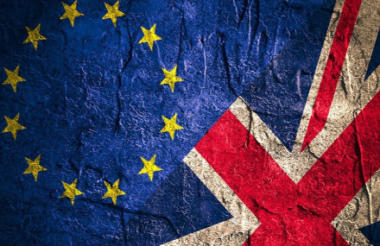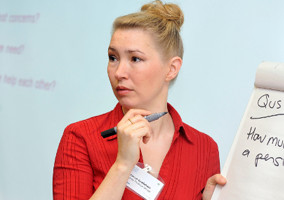In the United Kingdom post-Brexit, the voluntary sector is going to have more to do and less money with which to do it, according to NCVO’s Brexit lead.
Speaking at the Institute of Fundraising’s Trust Fundraising Conference in London yesterday, Brendan Costelloe, senior external affairs officer at NCVO, said that a fall in European Economic Area workers coming to the UK, stagnating economic growth and UK charities being unable to access EU funding post-Brexit, all posed dangers to the voluntary sector.
In terms of charitable workforce, Costelloe said that 65 per cent of all EEA citizens worked in London and the south east of England. Costelloe said that 3.6 per cent of current total voluntary sector staff are from EEA countries and that this 3.6 per cent figure was split “fairly evenly” across all areas of the charity sector.
In the healthcare sector alone, this 3.6 per cent figure amounts to 12,000 staff over half of whom live and work in London, he said.
While NCVO were pleased the government had agreed a deal allowing EU residents in the UK to stay post-Brexit, Costelloe said that immigration figures showed that fewer EEA workers were coming to the UK. He also said that, should the UK government apply the same immigration skills charge to EU citizens that it currently does to non-EU citizens post-Brexit, it could cost the sector around £1.7m a year.
‘Take heed’ of leaked Treasury economic forecasts
Costelloe said the charity sector should heed the leaked Treasury analysis modelling the impact of Brexit on the UK economy. The document, reported last week by Buzzfeed, showed that the UK economy would be worse off in all three of the “most plausible Brexit scenarios”.
“If we end up leaving the EU without a deal we’re looking at an 8 per cent drop in economic growth. If we leave the EU, but remain a member of the EEA, we’re looking at a 5 per cent drop. If we leave the EU, but somehow remain part of the single market and customs union and retain an ability to influence decision making, we’re still looking at a 2 per cent drop in growth. So that’s something that charities need to factor into their long term strategies,” said Costelloe.
He said “some of this” could be offset, should the UK leave the single market and customs union without maintain regulatory equivalence with the EU, by amending rules around VAT. He said those rules “at the moment stop charitable organisations from recovering VAT. That costs about £1.5bn a year.
“So in the event we’re able to renegotiate that, NCVO would be pushing very hard for the government to amend those regulations, which would be very beneficial to some organisations in the sector”.
Ongoing effects of austerity
Costelloe also said that the other problems affecting the UK haven’t stopped because of Brexit.
“We still have a refugee crisis; we still have a biodiversity crisis; we still have to grapple with climate change. All of these things are happening at the same time against the backdrop of deep cuts to public spending. A long term trend that doesn’t look like it’s going to end any time soon. We’re looking at £12bn worth of cuts to welfare between now and 2020. Cuts in the amount of money spent in prisons by 22 per cent.
“Between 2010 and 2017, the Department for Environment, Food and Rural Affairs and the Department for Justice have seen cuts of 42 per cent and are looking at further 20 per cent cuts in the next couple of years. Similar with the Ministry of Housing, Communities and Local Government.”
“In summary, there’s going to be more for charities to do and potentially less money to do it with,” he said.
Editor's note: This article has been amended to reflect that 65 per cent of all EEA citizens working in the UK do so in London and the South East of the country.
Related Articles












